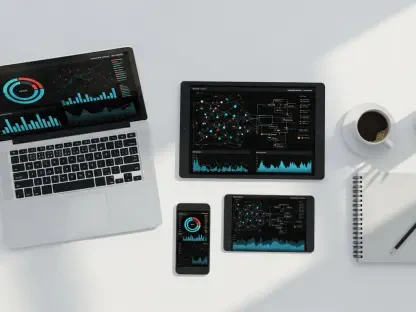In a digital age where privacy concerns are paramount, recent lawsuits have shed light on the alleged covert activities of prominent data analytics companies—Twilio, Verve Group, and Amplitude. These companies are accused of secretly collecting personal data from consumers’ devices through the highly detailed mechanism of software development kits (SDKs), raising significant questions about data ethics, security, and transparency. Filed on August 8, 2024, in California, these lawsuits expose a sophisticated and clandestine framework of data collection that aims to track user behavior to an unprecedented degree, accumulating data on geolocation, search terms, keystrokes, button presses, and numerous other digital actions without consumer consent. The implications of these practices are vast, providing a window into the most personal aspects of consumers’ lives, such as religious beliefs, sexual orientation, and medical conditions.
The Allegations and Their Impact
The core allegations against Twilio, Verve, and Amplitude revolve around their creation of an intricate “data collection pipeline” that covertly gathers and processes user data. The lawsuits allege that these pipelines track users at incredibly granular levels, collating sensitive data without their explicit consent. For instance, Twilio is accused of using its SDKs to collect real-time data from popular applications like the Calm meditation app. This process could potentially expose users’ mental health conditions such as anxiety and depression, deepening concerns about the extent of data harvesting. Similarly, the lawsuits against Verve and Amplitude focus on the gathering of geolocation data to construct detailed personal profiles, revealing where individuals live, work, and spend their time—critical insights that raise substantial privacy concerns.
The potential impact of these practices extends well beyond basic user profiling. By collecting such comprehensive data, these firms can infer deeply personal details, sometimes uncovering users’ religious beliefs, sexual orientation, and medical conditions without their knowledge. This invasive data capture can lead to significant breaches of privacy and trust, prompting considerable unease about the ethical implications of such covert surveillance in the digital age. Ultimately, the lawsuits highlight how seemingly benign data collection methods can evolve into profound invasions of personal privacy, emphasizing the necessity for stringent data ethics and better transparency.
Understanding the SDK Mechanism
At the heart of these allegations is the modus operandi involving SDKs—collections of pre-packaged computer code that developers integrate into their applications ostensibly to optimize performance. However, these SDKs also house covert data collection mechanisms, silently siphoning off user data as individuals engage with their favorite apps. This dual functionality creates a complex scenario where the enhancements provided by these SDKs come at the steep cost of user privacy. Users interact with these applications under the presumption of security, unaware that their sensitive information is being stealthily harvested and analyzed by third parties.
Verve’s PubNative SDK is specifically singled out in the lawsuit for its controversial “identity graphs” process. This intricate procedure cross-references device identifiers with personal information gathered from various apps and third parties, effectively dismantling any claims of anonymity. This method accentuates the challenges and potential pitfalls of anonymizing user data in today’s hyperconnected world. The “identity graphs” process by Verve exemplifies how data, once ostensibly stripped of identifiable information, can quickly be reassembled to identify individual users, calling into question the feasibility of true data anonymization.
Twilio’s and Amplitude’s Data Handling Practices
The lawsuits also cast a critical spotlight on Twilio’s Segment SDK, alleging it is used to compile exhaustive digital dossiers on users by aggregating data such as names, email addresses, and other unique identifiers. This practice allows Twilio to track user activities across multiple digital touchpoints, thereby constructing an extensive digital profile. Such comprehensive tracking capabilities highlight significant concerns about user privacy and the extent to which personal data is being collated and scrutinized without explicit consent. This lawsuit underscores the broader issues of digital surveillance and the moral obligations companies have to protect user information.
Amplitude faces similar accusations, with its SDK reportedly integrated into over 40,000 applications, including widely used platforms such as DoorDash. According to the lawsuit, Amplitude’s SDK is cited for its invasive data collection practices, which are embedded within the app ecosystem, generally unnoticed by the end user. These allegations suggest a systemic issue where user consent and data privacy are frequently sidelined in favor of large-scale data harvesting. This scenario further emphasizes the need for stringent data handling practices and strong regulatory oversight to safeguard consumer privacy in an increasingly interconnected digital landscape.
Ethical Concerns and Consumer Trust
One of the more acute issues underscored by these lawsuits is the pervasive lack of transparency and awareness among consumers regarding the extent to which their data is being harvested by third parties. Users typically remain in the dark about their sensitive data being captured, collated, and analyzed by entities far removed from the apps they actively use. This lack of upfront disclosure not only breaches user trust but also raises significant ethical concerns about informed consent and the limits of acceptable data monetization practices. The opacity surrounding these data collection tactics impedes users from making informed decisions regarding their privacy.
The lawsuits aim to represent all individuals who have used apps containing these SDKs without any explicit disclosure of the data-analytics companies involved. Notably, the Twilio and Amplitude suits seek to cover all users who have engaged with such apps, while Verve’s lawsuit specifically targets California residents using apps with the PubNative SDK under similar non-disclosure conditions. These legal actions highlight the urgent need for robust and transparent data handling policies that prioritize user consent and clearly communicate potential risks associated with data sharing.
Broader Industry Implications
At the center of these allegations is the secretive use of SDKs—bundles of pre-packaged computer code that developers integrate into their apps to improve performance. However, these SDKs also contain hidden data collection mechanisms, quietly gathering user data while individuals use their favorite applications. This dual functionality creates a situation where the benefits of SDKs come at the high cost of user privacy. Users engage with these apps believing they are secure, unaware that their sensitive information is being secretly harvested and analyzed by third parties.
Verve’s PubNative SDK is notably targeted in the lawsuit for its controversial “identity graphs” process. This complex method cross-references device identifiers with personal data collected from various apps and third parties, effectively dismantling any pretense of anonymity. This technique highlights the difficulties in truly anonymizing user data in today’s interconnected world. The “identity graphs” process used by Verve shows how data, even when seemingly stripped of identifiable information, can be pieced back together to identify individual users, questioning the possibility of genuine data anonymization.









